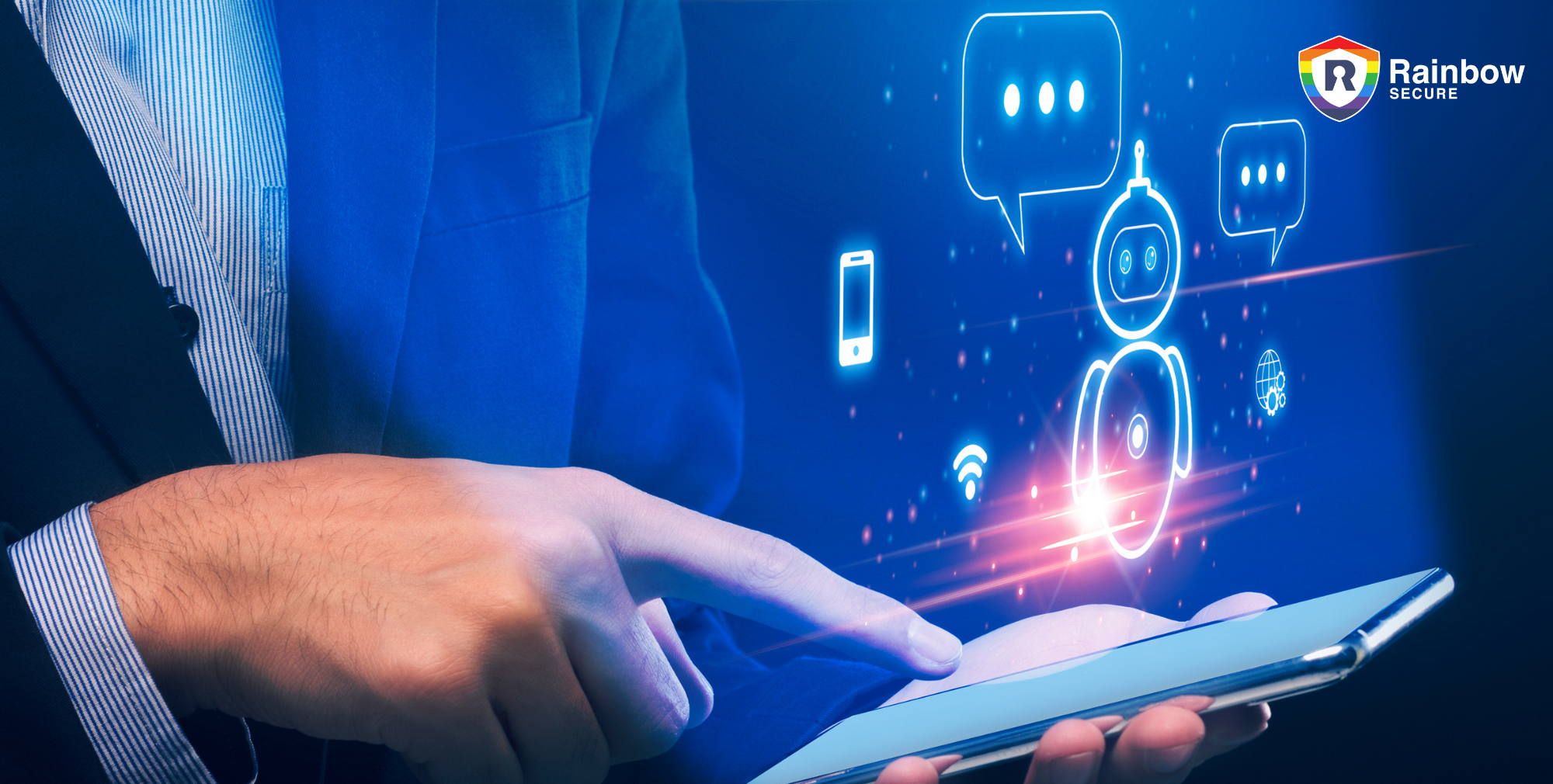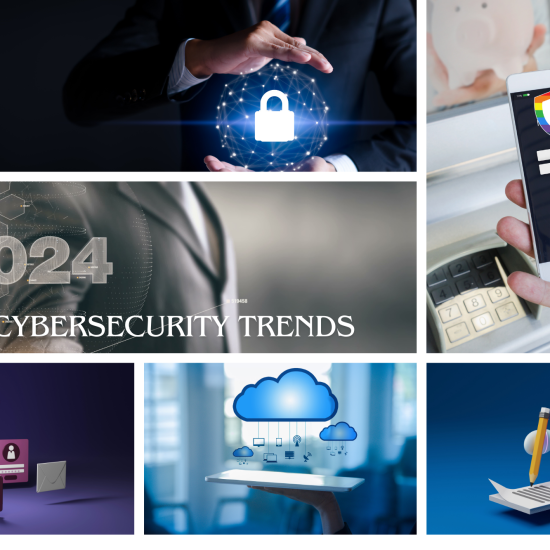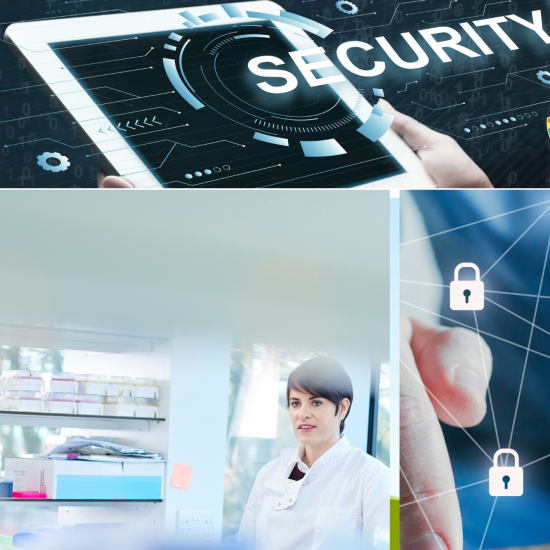How ChatGPT is revolutionizing the cybersecurity landscape?
In today’s interconnected world, cybersecurity is a critical issue that requires special attention. As cyber-attacks continue to evolve and grow more complex, businesses struggle to keep up with the latest cybersecurity measures. However, artificial intelligence (AI) has emerged as a revolutionary tool in this scenario. During the pandemic, the push to delegate work to computers and reduce human interaction led to accelerated AI innovation. Now, we are witnessing the consequences of this technological leap. Chatbots, such as ChatGPT, are transforming conversational robotics by using natural language processing (NLP) and machine learning (ML) to create original content and replicate human speech. Although AI has been a part of cybersecurity for some time, generative AI and ChatGPT are set to profoundly impact the future.
In this article, you will read about:
What is ChatGPT?
What are ChatGPT’s Impacts on Cybersecurity?
How ChatGPT is changing the cybersecurity landscape?
Assessing the Suitability of ChatGPT as a Business Enhancement Tool with Security in Mind
How can Rainbow Secure help?
What is ChatGPT?
ChatGPT is one of the most advanced chatbots available that uses AI to emulate human conversation. It is capable of generating responses by drawing from an extensive body of information in the AI community. Unlike other virtual assistants such as Alexa, which rely on search engine results to formulate an answer, ChatGPT uses machine learning data to come up with original solutions. It is designed to understand logical conversational paths and can detect and respond to unethical human requests. While ChatGPT could help cybersecurity analysts identify the source of cyber threats, it could also be exploited by hackers to obtain sensitive information. Therefore, the ultimate impact of ChatGPT on digital security is uncertain.
What are ChatGPT’s Impacts on Cybersecurity?
As the utilization of communication-maximizing AI continues to rise, certain businesses will require chatbots and other AI technologies to form a part of their risk management and assessment strategies. By incorporating AI into their operations, companies can gain a competitive edge and showcase their ability to adapt to and embrace new technologies. However, this shift in expectations has significant implications for cybersecurity. Analysts now face the challenge of implementing ChatGPT while navigating its inadequacies as a cybersecurity tool.
For instance, ChatGPT’s ability to write scripts for code or emails is concerning as it raises ethical questions. While a hacker may not be able to ask ChatGPT to write a phishing email with specific phrasing, they could ask it to produce an email in the voice of an authoritative figure and include malicious links. Moreover, due to its conversational capabilities, ChatGPT could execute ransomware attacks through automated text generation designed to initiate negotiations.
On the other hand, proponents of the software argue that ChatGPT can be utilized to enhance remediation and education. By generating defensive codes, relocating files to safer locations, or prompting employees to second-guess emails they open, ChatGPT can help strengthen cybersecurity. The possibilities are endless, and while ChatGPT is highly advanced, it’s still in the early stages of development, with much yet to be discovered about its capabilities.
How ChatGPT is changing the cybersecurity landscape?
Here are some ways in which ChatGPT is changing the cybersecurity landscape:
Improved Threat Detection
ChatGPT’s NLP technology can interpret and process large volumes of information, from security logs and network traffic to user activity. By utilizing machine learning algorithms, ChatGPT can identify unusual patterns that may indicate a cybersecurity risk, enabling security teams to anticipate attacks and take preventative measures.
Enhanced Incident Response
In the event of a cybersecurity incident, time is of the essence. ChatGPT’s capacity to process and analyze large amounts of data with speed and precision can aid organizations in reacting more swiftly and efficiently to threats. ChatGPT can identify the source of a security breach, guide how to contain the attack, and suggest methods to avoid similar incidents in the future.
Automating Security Operations
ChatGPT is a valuable tool for automating routine security tasks, such as patch management and vulnerability scanning. By taking care of these tasks, ChatGPT allows security teams to focus more on complex issues, leading to greater efficiency. Above all, this automation reduces the risk of human error, making it an essential addition to any team.
More Efficient Threat Intelligence
In the fight against cybercriminals, threat intelligence is a crucial component. ChatGPT’s advanced data analytics, identifying patterns, and processing of vast amounts of data make it possible. This helps organizations swiftly and accurately detect new threats and vulnerabilities. By doing so, organizations can prioritize their security measures and allocate resources more effectively.
Proactive Threat Hunting
By analyzing data and detecting patterns, ChatGPT can help security teams identify potential threats before they escalate into major issues. This technology empowers security teams to proactively hunt for threats and take necessary action before they cause serious damage.
Recognizing and Combating Phishing Scams
ChatGPT could be trained to identify the language and strategies utilized in phishing emails, allowing it to promptly recognize and flag them as potential threats.
Analyzing suspicious behavior on social media
ChatGPT can play a vital role in detecting cyberattacks, such as stolen credentials or the sharing of sensitive data.
Encryption and Decryption
By using ChatGPT to encrypt important data, cybercriminals will have a much harder time gaining access to it.
Finding Software Vulnerabilities
ChatGPT can be trained to find software flaws, enabling businesses to fix them before attackers can use them against them.
Automating Incident Response
ChatGPT may be used to automate incident response, enabling businesses to react to cyberattacks more rapidly and successfully.
Increasing User Awareness and Education
ChatGPT may be utilized to develop engaging, individualized cybersecurity training courses that can assist in informing and empowering users.
Automating Compliance and Audits
ChatGPT may be used to automate compliance and audits, assisting enterprises in adhering to legal obligations and being compliant.
Aiding Forensic Investigations
ChatGPT can help forensic investigations by offering insightful information about the origin and scale of intrusions.
Assessing the Suitability of ChatGPT as a Business Enhancement Tool with Security in Mind
The use of ChatGPT has grown significantly, providing information to consumers worldwide with a powerful tool. As a result, security leaders are increasingly considering ways to integrate such tools into their operations. However, it’s crucial to evaluate how such technology can be implemented safely and effectively into organizational workflows.
Users have generally reported positive experiences with the ChatGPT AI chatbot’s data output. Nonetheless, OpenAI, the bot’s parent company, has published various terms and safety policies. These policies remind users that ChatGPT currently lacks fact-checking capabilities, and its responses should not be blindly trusted.
The National Institute of Standards and Technology’s AI Risk Management Framework outlines several criteria that an AI system must meet to be deemed trustworthy. These include being reliable, valid, accountable, transparent, interpretable, fair, with harmful biases managed, secure, and resilient.
It’s becoming increasingly clear that employees need guidance on how to safely use ChatGPT to minimize risks. To protect data privacy, companies are taking the time to create ChatGPT-specific policies and procedures. These may involve recommendations and requirements for code checking, brainstorming, content drafting, editing, and research.
In addition to these policies and processes, organizations may also implement quality control over content where ChatGPT was involved in its creation. They may also address contractual risks associated with third-party generative AI tools used to produce or process sensitive data and deliverables. Managing inherent bias, privacy, consumer protection, intellectual property, and vendor risks are also key issues that may be addressed in these policies.
Privacy Risks Associated with ChatGPT
As AI systems can accumulate data, there is a chance that ChatGPT may collect personally identifiable information (PII) to provide outputs to end-users. The bot does not restrict the input of PII information, which can then be collected for future purposes.
Confidentiality Risks with ChatGPT
There are potential risks associated with interacting with the AI system, particularly when users input confidential information about the organization to obtain a better understanding or output. Although the results may be exceptional, such as the AI rewording the organization’s security policy, the system may collect this information for future responses, posing a confidentiality risk.
Data Integrity in ChatGPT
It’s important to acknowledge that AI-generated content from ChatGPT may sometimes produce output that deviates from the original context, leading to incomplete, inaccurate, or biased results. Additionally, relying solely on the output as factual can cause end-users to use erroneous information.
Identifying Legal and Regulatory Hazards with ChatGPT
As with any AI tool, ChatGPT has its own set of legal and regulatory risks. These can include the use of copyrighted material, trade secrets, or private information without the owner’s permission. End-users need to consider whether they have the right to use or publish such data. Additionally, users need to be mindful of the different geographical laws and regulatory requirements that apply when utilizing the AI bot’s data.
Reputational Risks Linked with ChatGPT
If your team is using ChatGPT to produce content, it’s important to note that tools are available to identify whether AI was used to create the content. Although recognition tools for content generated by ChatGPT are not perfect, utilities like OpenAI AI Text Classifier are improving rapidly and will likely become more widely used in the future. Be mindful of these risks to safeguard your reputation.
There’s no doubt that generative AI tools like ChatGPT have numerous advantages and can increase productivity in workflows and content production. However, even as companies try to maximize these benefits for a competitive edge, it is important to note that the utilization of generative AI is still in its early stages for large-scale adoption. When integrating ChatGPT into a business’s cybersecurity strategy, security leaders should consider the various risks involved across their people, processes, and technology. By implementing the appropriate safeguards, generative AI tools can be used to support existing security infrastructures.
How can Rainbow Secure help?
Right amount of data and system access to right person or role at right time is the key to organizations being able to use digital tools and platforms to serve the customer base and stay compliant.
Next Generation Rainbow Secure platform is a modern identity and single sign-on solution for your business across on-premises and cloud environments. It’s backed by an experienced team of cloud and security experts, years of innovation, and partnerships with leading cloud platforms. Rainbow Secure is a Leader in Smart and Secure Digital Solutions that work for you.
ChatGPT Security for business: Secure your ChatGPT login and Data with Rainbow Secure MFA Plugin.
Secure AI Integration: Consult Rainbow Secure Team to integrate AI in your business workflows powered by Azure and Rainbow Secure API.
Secure Workforce & Customer Login: Use Authentication Plug-in by Rainbow Secure to secure workforce and customer logins. In this plug-in, you get a multi-dimensional password, passwordless login solutions with AI monitoring, Risk Analytics, and location fencing.
IoT Friendly Security: IoT platform developers can secure their cloud endpoints, and user logins (both admin and customer) against unauthorized access and scripted malware attacks using easy-to-adapt and support multi-layer interactive rainbow secure authentication solutions and services that include but are not limited to security assessment, API Security, secure user onboarding, and risk analytics.
Secure Data and its Backups We provide Cloud-based data vault and data archive solutions backed by Microsoft Azure and secured by our authentication plugin and industry best practices to give you ransomware protection and help with data governance and disaster mitigation.
Database Security: We provide technical consulting services to Secure Databases in the cloud and on-premise. You get the best protection for your data in databases using native and third-party security tools.
Meet Compliance Requirements: Use Authentication Plug-in by Rainbow Secure with your business application and in SSO (Single Sign-on) and meet industry standards and compliance regulations such as NIST, ISO, FTC, SOX, SOC2, CMMC, CMMI, HIPAA, PCI, and others.
Securely communicate and Collaborate: Use Secure Business Email by Rainbow Secure and get protection against account takeover, phishing, ransomware, and automated login cyber frauds. In this email, you get options to send encrypted emails, single sign-on with Office 365, and Google, and 1 TB one drive storage.
Connect Business applications: Get one unified login using Rainbow Secure Single Sign-On
Manage User Onboarding / Offboarding using Rainbow Secure IAM
Verify User using Smart Multi-factor MFA. Smart Multi-Factor Authentication from Rainbow Secure which adjusts to your use case, reduces the cyber liabilities of a business from stolen credentials and improves productivity, and enhances user experience.
Do you have more questions about how innovative, patented Rainbow Secure helps secure your ChatGPT login and Data and also helps to integrate AI in your business workflows powered by Azure, Rainbow Secure API? Contact us today. Email us at Hello@rainbowsecure.com







